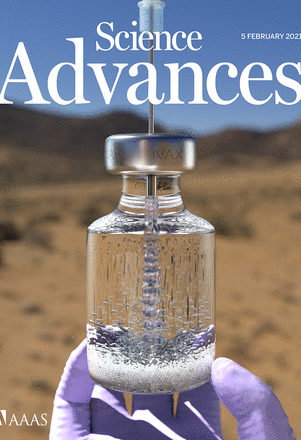Sci Adv. 2021 Feb 3;7(6):eabd9941. doi: 10.1126/sciadv.abd9941. Print 2021 Feb.
Paul Vigne 1, Clotilde Gimond 1, Céline Ferrari 1, Anne Vielle 1, Johan Hallin 1 2, Ania Pino-Querido 3, Sonia El Mouridi 4, Laure Mignerot 1, Christian Frøkjær-Jensen 5, Thomas Boulin 4, Henrique Teotónio 3, Christian Braendle 6
Affiliations
1 Université Côte d’Azur, CNRS, Inserm, IBV, Nice, France.
2 Institut de Biologie Intégrative et des Systèmes, Département de Biologie, Université Laval, Québec, Canada.
3 IBENS, Département de Biologie, Ecole Normale Supérieure, CNRS, Inserm, PSL Research University, F-75005 Paris, France.
4 Institut NeuroMyoGène, CNRS, Inserm, Université de Lyon, Lyon, France.
5 King Abdullah University of Science and Technology (KAUST), Biological and Environmental Science and Engineering Division, Thuwal, Saudi Arabia.
6 Université Côte d’Azur, CNRS, Inserm, IBV, Nice, France. braendle@unice.fr.
Abstract
Genetic assimilation-the evolutionary process by which an environmentally induced phenotype is made constitutive-represents a fundamental concept in evolutionary biology. Thought to reflect adaptive phenotypic plasticity, matricidal hatching in nematodes is triggered by maternal nutrient deprivation to allow for protection or resource provisioning of offspring. Here, we report natural Caenorhabditis elegans populations harboring genetic variants expressing a derived state of near-constitutive matricidal hatching. These variants exhibit a single amino acid change (V530L) in KCNL-1, a small-conductance calcium-activated potassium channel subunit. This gain-of-function mutation causes matricidal hatching by strongly reducing the sensitivity to environmental stimuli triggering egg-laying. We show that reestablishing the canonical KCNL-1 protein in matricidal isolates is sufficient to restore canonical egg-laying. While highly deleterious in constant food environments, KCNL-1 V530L is maintained under fluctuating resource availability. A single point mutation can therefore underlie the genetic assimilation-by either genetic drift or selection-of an ancestrally plastic trait.
PMID: 33536214
DOI: 10.1126/sciadv.abd9941

